 |
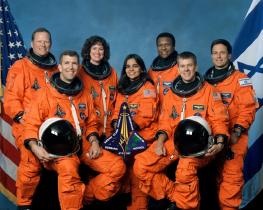 |
 |
Join the Columbia Disaster discussion group at Yahoogroups.com.
To subscribe, send e-mail to columbia_disaster-subscribe@yahoogroups.com,
or visit http://groups.yahoo.com/group/columbia_disaster
to join.
"The Fall of Phaeton"
adapted from a retelling
of the myth by James Parks and Sally Corbett, 1997,
and from Bulfinch's
Mythology
 In
ancient Ethiopia there lived a young boy by the name of Phaeton.
His mother was an Ethiopian princess, but his father was the sun-god himself.
One day as Phaeton was playing with a friend he boasted that his father
was Apollo, the god of the sun. Phaeton's friend teased him and said,
"The sun isn't really your father. Your mother just made that up
and you are foolish to believe such a story." In
ancient Ethiopia there lived a young boy by the name of Phaeton.
His mother was an Ethiopian princess, but his father was the sun-god himself.
One day as Phaeton was playing with a friend he boasted that his father
was Apollo, the god of the sun. Phaeton's friend teased him and said,
"The sun isn't really your father. Your mother just made that up
and you are foolish to believe such a story."
Phaeton went home confused and ashamed. He told his mother of the taunt and begged her to give him some proof that he really was the child of the sun. His mother spoke softly but proudly, "My son, your father truly is the radiant sun, but if you have doubts, then why not go to his palace and speak to him yourself? Go to the land of the far East and there in the high mountains you will find the glittering palace of your father, the sun."
Apollo spoke, "Why have you come here to the far ends of the earth, Phaeton?" The boy replied, "Sir, I have come to find proof that you, great Apollo, are truly my father." The sun-god smiled and answered, "Your mother has spoken the truth. I am your father. As proof of this I will grant you one wish of your heart's desire."
The
god of light quickly regretted giving his child a wish and pleaded, "No,
my child, choose something else. You ask for too dangerous a gift.
Even Zeus, the mighty god of thunder, will not drive the chariot of the
sun. The horses breathe out flames and the chariot itself is fiery
hot. So powerful are the steeds that I, a full-grown god, can barely
restrain them. What chance would a mortal boy have? The journey
is steep and at times I myself have grown dizzy looking down from the great
heights at the Earth below. The path through the stars leads near
great, dangerous But Phaeton refused to change his mind and insisted on driving the chariot of the sun. Apollo sighed and led the boy to the magnificent chariot. It was made of blazing gold, with golden wheels that had spokes of silver. The chariot was embedded with rubies and other precious gems. But unlike earthly jewels, these gave off a dazzling glow. The horses were called and then brought forth by the Hours, goddesses who waited upon the sun. At
the proper time Aurora, goddess of the dawn, opened the curtains of her
splendid palace and the skies were filled with a rosy glow. The sun-god
spoke, "It is almost time for the chariot to begin its daily course.
But there is still time for me to take your place. Heed my plea and
let me go forth, my son."
The glow from Aurora's palace had now turned golden and the morning star had set. Thus the day beckoned the horses of the sun, who were pawing the ground and letting out blasts of fiery flames with each snort. With a bolt, they charged forth. But their load was much lighter than what they were used to, so the steeds galloped faster and wilder than usual.
Closer and closer the fiery chariot came to the Earth. A thundering roar echoed across the sky as the horses' hooves pounded the air. Rivers began to dry up, and cities and forests caught fire because of the great heat. Neptune raised his head from the sea and shook his trident angrily at the chariot of the sun. But the air was so hot that Neptune soon dove back into the deep blue sea. As the chariot crossed the continent of Africa it was so close that it set on fire the great Sahara forest. That wooded region of northern Africa was reduced to ashes and burning sands.
Quickly
Vulcan, the master craftsman of the gods, made a new golden chariot for
the sun. But Apollo was so sorrowful over the death of his son that
he refused to drive it. So the next day passed without sunlight.
Zeus and the other gods then came and pleaded with Apollo, begging him
not to leave the world in darkness. The sun god spoke bitterly of
his son's death at the hand of Zeus. But the chief of the gods replied,
"It is true that you have lost a son. But how many people on Earth
were burned up? I had no choice but to destroy the fiery chariot,
otherwise every creature on Earth would have been consumed."
|
| An odyssey into the mind's eye...
I can see him... In my mind's eye, I can see young Phaeton, the child of the sun, setting off on his quest. Such expectation! Such anticipation! Despite lingering doubts, and driven by the unencumbered idealism of youth, the young man strikes out from the comfort and security of his home on the search of his life... to discover who he truly is. I began at the beginning, and I'm
searching for an end
The lad knows not when or where he will find the answers that he seeks; he knows not what he will find at his journey's end. In the face of hardship and doubt, he could so easily return to the familiar life that he has left behind. But the questions of his childhood drive him onward... inexorably onward. There's a place that I am drawn to,
His travels take him through strange and unknown lands, where he meets strange peoples with even stranger customs. Many cannot fathom what drives this "sun's child" to forsake all that he has ever known, all that he has ever loved, to pursue a dream not of this world; many more scoff at what must surely be a fool's errand. He has journeyed far enough, they say; it is time for him to forsake his childish quest and instead to settle down and live "a responsible life." But that is not who he is... Now I have seen the far horizon
...He is Phaeton, child of the sun,
and his destiny lies in the stars, beyond the horizon of human understanding
and imagination, beyond the boundaries of the dawn, within the shining
domain of Apollo, upon the mountains of the sky. In his travels he
has heard some suggest that his journey itself is his destination, that
what he learns and discovers about himself and the world along the way
will be the answer that he seeks, but he knows that they are wrong.
His journey exists solely for the sake of his destination. He is
a traveler... and he's on the road to carry him home.
I will roam these vaulted
heavens
'til I know I'm not alone...
I am a traveler ... I'm on a road
to carry me home
From his glorious throne Apollo beams brightly, as when his chariot stands in mid-sky. All is as it should be. The father knows the son as the son knows the father. As proof and as reward to his offspring, the sun-god offers Phaeton any wish of his heart's desire: riches, wealth, jewels, fame, fortune -- anything that a mortal heart could want. And then Apollo's face darkens, as when Selene of the moon passes before him, as the heir of Apollo rejects mere mortal riches and claims what is his by right of birth: the reins of the chariot of the sun. Ever reaching, ever hoping,
The god of the sun has given his word
and is honor-bound to keep it, though it rends his heart to do so.
His son has requested the one thing that Apollo cannot bear to give, nor
bear to refuse. The boy's ears are deaf to his father's warnings
and pleadings. Young Phaeton has reached the end of his wanderings;
he has found the fullness of his life and he embraces it passionately,
as a lover cleaves to his beloved. As the shining chariot launches
into the sky with the boy at the reins, his father looks on in sorrowful
pride, for he knows what his mortal son cannot yet grasp: in order for
Phaeton to find his life he must lose it, for only in losing his life will
he indeed find it. It is his destiny.
At the end of all these
wanderings,
there is something so immense...
I am a traveler ... I'm on a road
to carry me home
I can see him... In my mind's eye, I can see Phaeton
still... not the flaming ruin and wreckage that marked his mortal end,
but the flaming hope and passion that drove him ever onward toward his
goal. I see him still searching, still seeking, still striving far
beyond the horizon of his own knowledge and experience toward a reality
he can as yet only dimly perceive. I see him casting aside confusion
and fear, doubt and uncertainty, to cross the vast domains that separate
him from his birthright... from his destiny.
Apollo's child is not lost. He is not alone. He is a traveler...
|
|
At the edge of what is known...
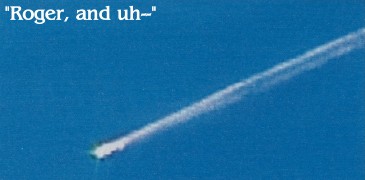 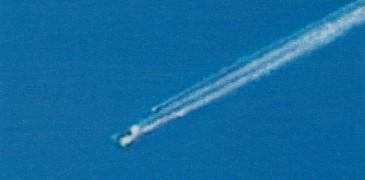 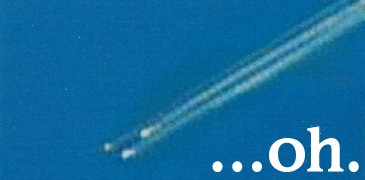 |

"Columbia, Houston..."
|
| "Columbia...
Houston..."
|
| "Columbia...
...Houston..."
|
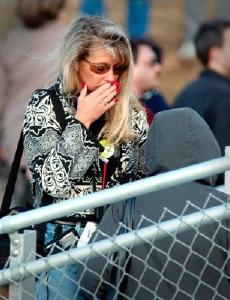 |
|
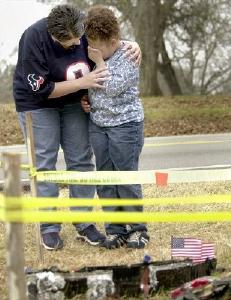 |
| "Columbia..." |
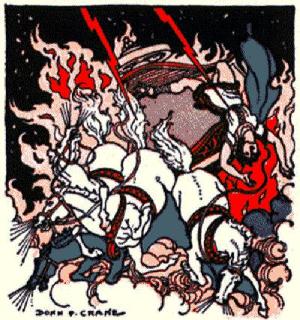
"...Phaeton, his hair on fire, fell
headlong,
like a shooting star which marks
the heavens
with its brightness as it falls..."

|
I can see them... In my mind's eye, I can see the Columbia
Seven still... not the flaming ruin and wreckage that marked their mortal
end, but the flaming hope and passion that drove them ever onward toward
their goal. I see them still searching, still seeking, still striving
far beyond the horizon of human knowledge and experience toward a reality
they can as yet only dimly perceive. I see them casting aside confusion
and fear, doubt and uncertainty, to cross the vast domains that separate
them from humanity's birthright... from humanity's destiny.
Apollo's children are not lost. They are not alone. They are travelers...
|
I am a traveler ... I'm on a road
to carry me home
I am a traveler ... across the sky
I endlessly roam
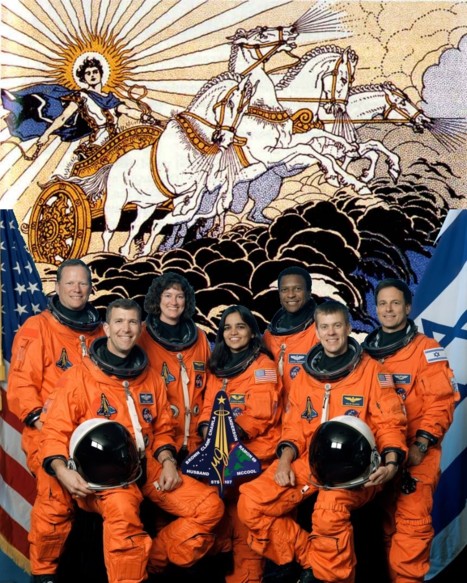
"The same Creator who names the stars
also knows the names of the seven
souls we mourn today.
The crew of the shuttle Columbia
did not return safely to Earth,
but we can pray that all are safely
home."
President George W. Bush
February 1st, 2003

Nightfall by Mike Vincent. Used with permission.
Downlinks...
"...and
for other purposes..." by Chris Valentine
A
Music-Video Essay Honoring the Crew of STS-107
(view
a brief trailer for the video here)
"When the Space Shuttle Finally Flies" -- National Geographic, March 1981
2013: Tenth Anniversary Coverage
CNN:
NASA, Texas Towns Mark Columbia Disaster
ABC
News: Columbia Space Shuttle Crew Remembered
CBS
News: Remembering Columbia
Fox
News: Ten Years Since Columbia and Crew Lost
NBC
News: Space Travel Still Poses Risks
NPR:
Ten Years Since Loss of Space Shuttle Columbia
Columbia
Accident Investigation Board Report
President
Bush's Speech to the Nation, February 1st, 2003
Columbia
Commander Rick Husband's Tribute to the Apollo 1 and Challenger
Astronauts
President
Bush's Memorial Address, February 4th, 2003
Mission
Control Transcript of Columbia's Final Minutes
NASA.gov:
Remembering Columbia STS-107
Fire
in the Sky: A Video Excerpt from TLC's "Blast Off: True Stories from the
Final Frontier"
ABC
News: Seven Heroes, Seven Faiths
Columbia:
The Legend Lives On...
Return
to Flight -- Broken Dreams
"Contrails"
-- A Memorial in Song by John P.M. Dillon
My
Son Jeff's Story of the Columbia
My
Children's
Columbia Artwork
Columbia
Editorial Cartoons
A
Personal Reflection by Mark A. Durstewitz
"Space
Shuttle Columbia Crash" -- An Essay by Garry D. Wilson
Ongoing Coverage of the Columbia Disaster:
Spaceflight
Now: STS-107 Mission Report
CNN
Specials: Lost: Space Shuttle Columbia
MSNBC:
Columbia
Tragedy
NPR:
Special Coverage - Space Shuttle Columbia
NASA:
Space Shuttle Columbia and Her Crew
Credits:
Columbia and related images:
Dr. Scott Lieberman - Tyler Morning
Telegraph/AP (3)
Eric Long and Mark Avino - Smithsonian
Magazine
NASA (17)
The Learning Channel (8)
Joe Dean, Reentry
Gene Belvins - Los Angeles Daily
News/AP
KOEN
NASA TV via AP
Robert McCullough - Dallas Morning
News
Reuters
MSNBC TV
Terry Renna/AP
Scott Audette/AP
L.M. Otero/AP
Pablo Martinez Monsivais/AP
"Falling Star, Soaring Eagle" cartoon
by Ed Stein of the Rocky Mountain News, February 6th, 2003;
"Eternal Columbia" cartoon
by Bill Day of the Commercial Appeal, February 14th, 2003
Phaeton and related images:
Hikingallery.com
Bulfinch's
Mythology
The
Constellation Home Page
C. Desmeure, Phaeton, c. 1875
Sebastiano Ricci, Fall of Phaeton,
1703-04
The song "The Traveler" by Kerry
Livgren appears on this site with Mr. Livgren's generous permission.
Lyrics and music by Mike Adams and
Kerry Livgren
Lead Vocals by Kreg Hoover
Drums by Chris Kearney
All other instruments by Kerry Livgren
"The Traveler" first appeared in vocal
and instrumental forms on the 1996 soundtrack album
Odyssey into the Mind's Eye
on Numavox Records.
Click the above image for more information about this album.
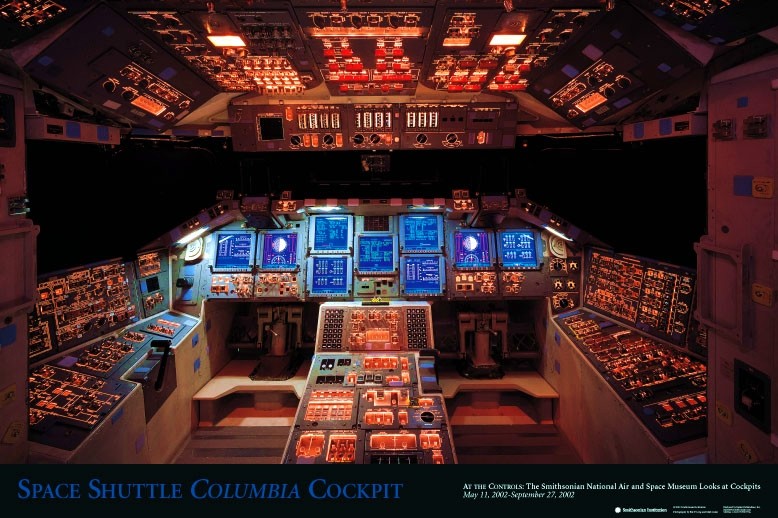
Site concept and design by
Michael E. Brooks, M.Div., Th.M.
dataman@datamanos2.com
Special thanks go to the following people for helping to review this site prior to its debut:
Diana Whay, Bill Evans, Robert Pilaud,
Ken Westphal,
Garth Hjelte, Michael Bennett and
Greg Hattemer.
Special thanks also go to Chris
Valentine for hunting down and providing excerpts
from NASA and Mission Control audio
feeds of Columbia's final reentry.
Extra special thanks go to Kerry Livgren
for all the music over the years and for his generosity
in allowing me to use one of his
songs as the heart of this site.
And finally, unfathomable thanks go
to the brave men and women
of the Space Shuttle Columbia
STS-107.
ALL MANKIND IS IN YOUR DEBT.
"When once you have tasted flight,
you will forever walk the Earth with your eyes turned skyward,
for there you have been, and there
you will always long to return."
-- Leonardo da Vinci --
Please visit also
and
Return to the
NASA Ribbon image by Clay Bennett
of The Christian Science Monitor.
(Disclaimer: This site has no official connection with or endorsement by NASA.)